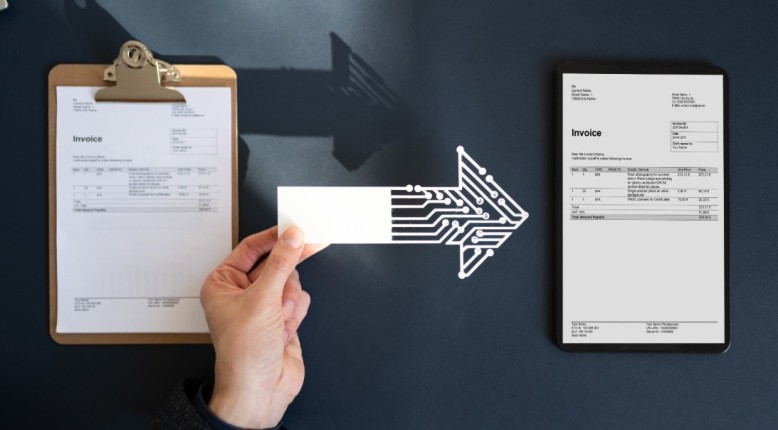
The hospitality industry is no stranger to change. From digital bookings to personalized guest experiences, innovation has become essential for survival. But behind the scenes, a quieter revolution is underway, one focused on something far less glamorous: invoices.
The shift to e-invoicing, accelerated by EU regulations, is reshaping how hotels, restaurants, food service companies and suppliers manage their financial operations.
This transformation isn’t just about compliance. It’s about unlocking real value: reducing costs, accelerating payments, minimizing errors, and strengthening supplier relationships. When implemented effectively, e-invoicing can turn one of hospitality’s most tedious back office tasks into a source of efficiency and strategic insight. But achieving this requires more than just new technology, it demands the right strategy, the right partners, and the right mindset.
Suppliers, hospitality leaders, and SaaS procurement and ERP solutions play a critical role in this evolution. Collaboration among these stakeholders can build powerful, integrated networks that drive automation, enhance control, generate operational insights, and improve compliance, giving hospitality operators a competitive edge in a fast-paced and demanding market.
The Operational Burden of Traditional Invoicing
Paper-based and semi-digital invoicing processes continue to create significant inefficiencies for hospitality businesses. These challenges are magnified by the sector’s reliance on high-volume, low-margin transactions with a large and diversified supplier base.
Processing a single invoice manually can cost much more than handling it electronically. Multiply that by thousands of invoices each month, and the drag on your budget, time, and sanity becomes clear.
In their Harvard Business Review article Break the Paper Jam in B2B Payments, Berez and Sheth (2007) highlight how electronic invoicing and payment systems can reduce accounts payable overhead by over 50%. These cost savings stem from eliminating resource-intensive tasks like printing, postage, physical storage, and manual data entry all of which are not only expensive but also prone to error.
Beyond cutting costs, e-invoicing accelerates payment cycles, streamlines processes, and boosts transparency. These benefits are particularly valuable in hospitality, where financial agility and supplier trust are mission-critical.
European Regulatory Landscape: A Multilevel Policy Framework
The European Union has taken a layered and forward-thinking approach to digital procurement reform, placing e-invoicing at the heart of its strategy. Through EU Directive 2014/55/EU and the EN 16931 semantic standard, a unified foundation was established for Business-to-Government (B2G) transactions. But the ambition doesn’t stop there.
With the VAT in the Digital Age (ViDA) initiative, the EU is extending its scope to cover Business-to-Business (B2B) transactions effectively making e-invoicing the new default language of commerce across Europe.
This regulatory momentum is reinforced by national initiatives. 이탈리아 was a pioneer, mandating B2B e-invoicing as early as 2019. France and Germany are following closely, with phased mandates beginning in 2025 and 2026, respectively (European Commission, 2024).
Meanwhile, PEPPOL (Pan-European Public Procurement Online network) has emerged as the digital bridge, enabling secure, standardized document exchange across borders and systems.
But this isn’t just about ticking regulatory boxes, it’s a practical application of systems thinking. These coordinated efforts are building a smarter, inter-operable ecosystem where platforms and regulations are aligned across borders. The result? Hospitality businesses from boutique hotels to large international groups can seamlessly connect with their suppliers, no matter the supplier’s size or level of digital maturity.
When countries sync up and platforms speak the same language, the entire hospitality industry stands to benefit, not just through compliance, but through collaboration, operational agility, and data-driven decision-making.
If your business trades within or across EU borders, this changes are coming for you.
Facing Reality: Challenges and Smart Solutions
Despite its clear benefits, e-invoicing isn’t without challenges.
- Supplier Digital Divide: Your large food distributor may be digital ready, but your artisanal olive oil supplier from Sicily? Maybe not. Bridging tools like third party portals, mobile invoicing apps, and OCR technology can help close this gap.
- Jurisdictional Variance: Each country is at a different stage of the e invoicing rollout, with its own requirements and formats. Multi country operators will need adaptive, flexible solutions.
- Upfront Costs: Software licenses, integration, and staff training all add up. However, many SaaS providers are now embedding e-invoicing functionality into their platforms, and partnering with 3rd party and suppliers significantly lowering the barrier to entry.
In fact, Procure-to-Pay solution providers are realizing that basic invoice management is no longer enough. Hospitality clients are demanding smarter tools: automated accounts payable with embedded compliance, AI powered invoice reconciliation, and true three way matching, all designed to eliminate repetitive manual work and free up finance teams to focus on strategy, not spreadsheets.
E-invoice adoption, don’t Wait to Be Forced, Lead the Change.
In conclusion, e-invoicing should not be seen merely as a regulatory obligation, but as a strategic modernization of the hospitality sector’s financial infrastructure. It may not sparkle like a newly renovated lobby or a new Michelin-star restaurant in the property, but its impact runs deep. By digitizing and streamlining invoicing processes, hospitality businesses can unlock greater efficiency, strengthen supplier relationships, ensure regulatory compliance, and make smarter financial decisions, all of which are essential in a sector that constantly faces economic uncertainty and shifting on consumer expectations.
As regulatory mandates continue to roll out across Europe, the choice is clear: wait to react, or lead the change. Early adopters won’t just stay ahead of legislation, they’ll gain a decisive operational edge in an increasingly competitive market.
Because at its core, hospitality is about delivering seamless, frictionless experiences. Isn’t it time your back office did the same?
Author: Leo Costa, Solutions Consultant, BirchStreet